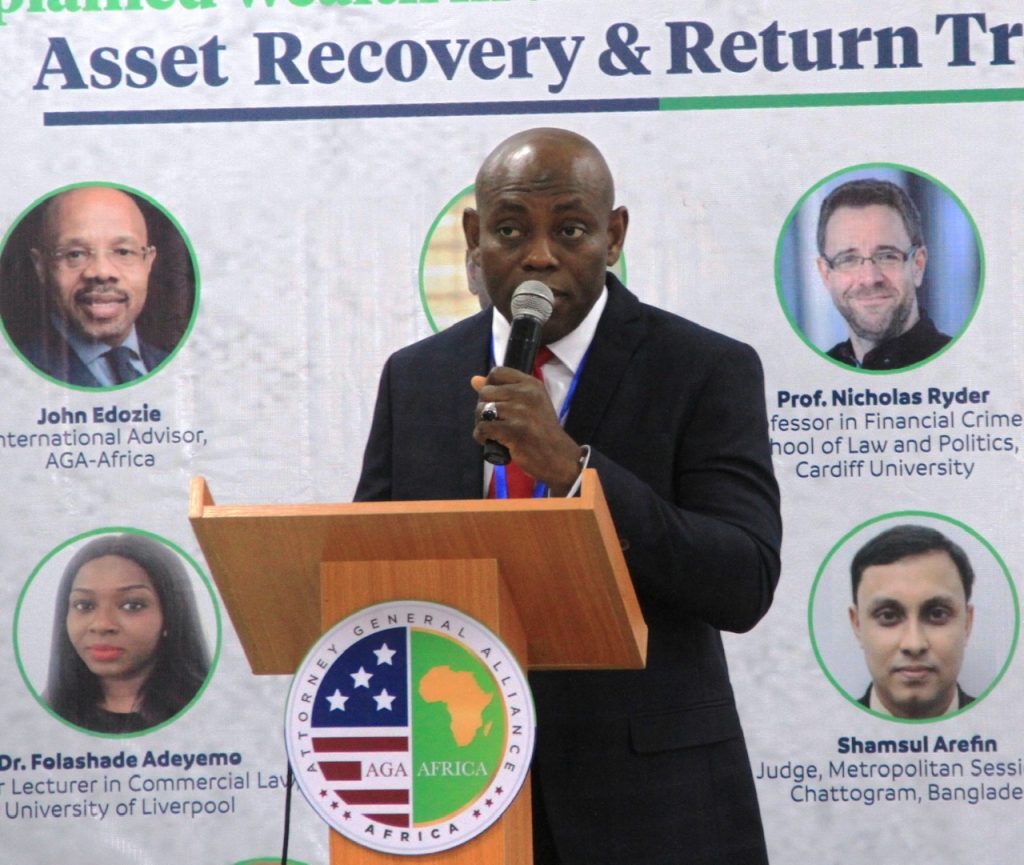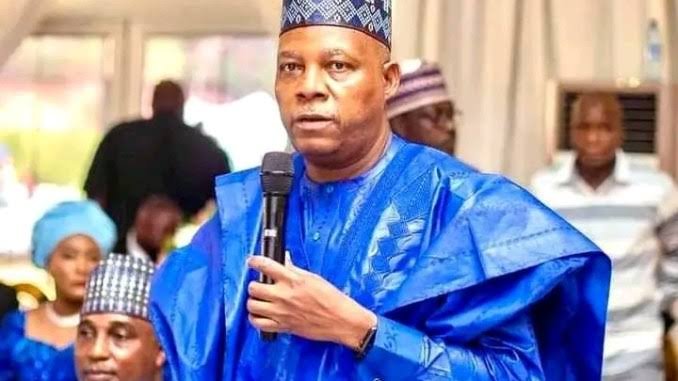Crime
EFFC Calls For Legislation Against Alleged Fraud

EFFC Calls For Legislation Against Alleged Fraud
The Executive Chairman of the Economic and Financial Crimes Commission (EFCC), Ola Olukoyede, has advocated for the implementation of legislation against unexplained wealth in Nigeria.
This proposed law aims to combat the criminal activities of individuals who engage in treasury looting within the country.
In a statement by the EFCC Spokesperson, Dele Oyewale, on Thursday, the Chairman made the call during the Two- Day International Law Conference titled: “Unexplained Wealth in the Global South: Examining the Asset Recovery and Return Trajectory” organized by Christopher University, Mowe Ogun State.
Olukoyede, represented by the EFCC Abuja Zonal Commander, ACE1 Adebayo Adeniyi, highlighted that several foreign nations have already adopted Unexplained Wealth Orders (UWOs) as an effective tool to address treasury looting and corruption.
Unfortunately, Nigeria has not yet enacted such legislation and typically relies on Section 7 of its Establishment Act to take action
“The issue of unexplained wealth is not a local issue. There are jurisdictional legislations across the world to tackle it. Till date, countries of the world are faced with criminalities emanating from money laundering practices and illicit funds.
“This circumstance led to the promulgation of Unexplained Wealth Orders, UWOs that came into force in 2018. Several countries, such as the United Kingdom, Australia, Mauritius and African countries like Kenya, Zimbabwe, and Trinidad and Tobago in the Caribbean have come up with UWO. Nigeria is yet to come up with a national legislation on it.
“Owing to the absence of legislation on the issue of unexplained wealth, the EFCC continues to rely on provisions of Section 7 of its Establishment Act to handle it.”
The Chairman asserted that unexplained wealth can only serve the public interest if it is seized by the state.
He further mentioned that the EFCC has successfully obtained significant assets from fraudulent individuals, including houses, vehicles, barges, jewelry, money, furniture items, and properties.
“Procedures for asset forfeiture usually involve the prosecution of the suspected fraudster. Assets may be forfeited on an interim basis and may also be forfeited permanently, depending on the position of the law and the court. However, whether interim forfeiture or permanent forfeiture, what is important is for every ill-gotten wealth to be recovered and kept with the government.” He added.
Olukoyede urged the public to actively provide information about suspicious assets within their communities, as the EFCC’s operations greatly depend on the availability of intelligence and information.
Additionally, the Chairman identified certain challenges in asset recovery in Nigeria, such as the technicalities involved in prosecuting looted assets, which may require publication in prominent newspapers.
The recovery of stolen funds stashed in foreign jurisdictions also poses obstacles in the process.
“Recovery of stolen funds stashed in foreign jurisdictions is more complex.
“Institutions of state are usually involved in the recovery of such funds and this takes far more time and effort. The return trajectory involved in this may even take years and this can be frustrating to anti-corruption agencies or government institutions involved in the recovery. Nigeria is having such instances in the recovery of looted funds by many government officials.” He said.
-

 Entertainment1 week ago
Entertainment1 week agoVideo: See What Ned Nwoko Did To Tiktoker Who Claimed His Wife, Regina Daniels Has A Boyfriend In Abuja, Sowore Slams
-

 Crime3 days ago
Crime3 days agoBREAKING: Nigerian Man Arrested in U.S. Over Massive Fraud Scheme Targeting Veterans’ Health Organization(PHOTO)
-

 Education3 days ago
Education3 days agoBREAKING: Lagos Launches Bold Move to Control Private and Mission Schools – New Policy to Shake Up Education Sector
-

 Entertainment1 week ago
Entertainment1 week agoSony Music Signs Famous Gospel Singer, Shola Allyson
-

 Headline1 week ago
Headline1 week agoPresident Tinubu Vows Justice for Plateau Wedding Guests Killed in Attack
-

 Crime4 days ago
Crime4 days agoBREAKING: Popular Nigerian Gospel Singer Sentenced To Death By Hanging
-

 Headline4 days ago
Headline4 days agoSenate Appoints Chibudom Nwuche, As Chairman Of South-South Development Commission
-

 Headline4 days ago
Headline4 days agoHIJRAH 1447AH: Osun, Jigawa Govts Declare Friday Public Holiday
-

 Headline1 week ago
Headline1 week agoBREAKING: US Attacks Iran, Bombs Nuclear Sites
-

 Headline1 week ago
Headline1 week ago2027 Election: APC Faces Internal Power Struggle Over Shettima’s Vice Presidential Role






















